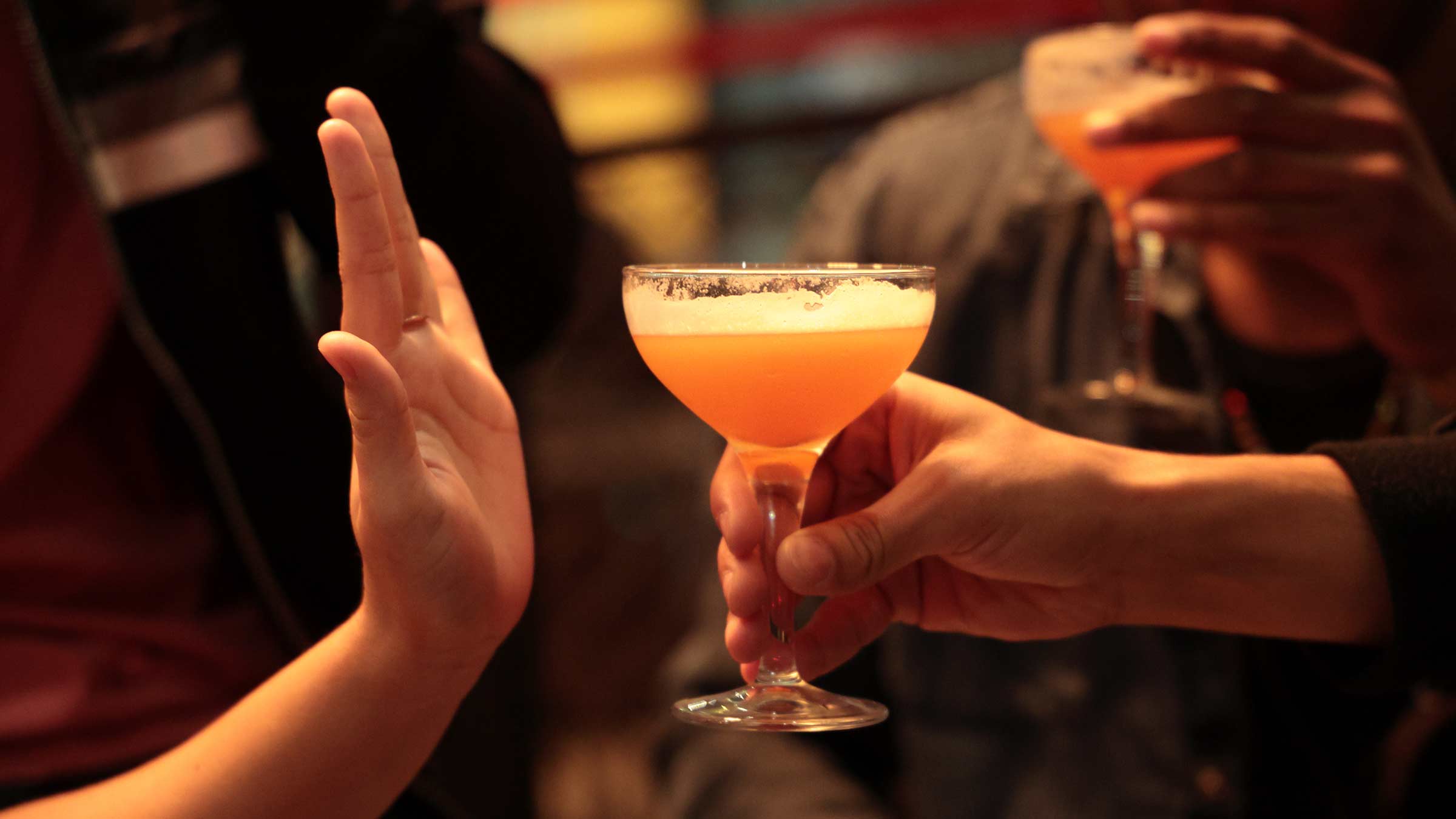
There are many reasons you might decide to curb or stop drinking. Maybe you don’t like the way alcohol affects you or how it makes you feel. Perhaps a new medical diagnosis or health condition has made you re-evaluate your alcohol consumption. No matter your reason, the decision to cut back or stop drinking isn’t without its challenges. But doing so can help you be happier and healthier in the long run.
Alcohol affects your health in many ways. Even if you consume a moderate amount, drinking can make you feel groggy, foggy or hungover the next day. It can also cause disrupted sleep, digestive issues, memory problems, increased irritability, anxiety and depression as well as conflict with loved ones or cause difficulty maintaining life responsibilities.
Chronic or excessive drinking can cause more harmful effects including:
- A weakened immune system, which makes your body an easier target for disease. Chronic drinkers are more likely to contract pneumonia and tuberculosis than people who don’t drink.
- Problems with brain function: Alcohol interferes with the brain communication pathways and can affect the way the brain looks and works. These disruptions can cause mood swings and behavior changes and impair judgment and coordination. They can also cause changes in sleep patterns and lead to persistent insomnia.
- Heart damage including stroke, arrhythmia and high blood pressure.
- Chronic inflammation in the panaceas and liver, including fatty liver, hepatitis and cirrhosis.
- Cancer: Many forms of cancer stem from alcohol abuse, such as cancers of the head and neck, esophagus, liver, breast and colon.
You may not be dependent on alcohol, but if you’re questioning whether you drink too much, it can be an indicator of a potential problem.
Here are some questions to ask yourself and steps to help get you started in curbing your drinking or quitting altogether.
Explore your relationship with alcohol
The first thing to do is to learn more about your relationship with alcohol. Be honest, and ask yourself:
How much do you drink?
You might not drink every day or only have a few drinks a week. You might consider yourself a social drinker but find it hard to stop when you’re out with friends drinking the same amount.
Why do you drink?
Figuring out how much you drink and why is key. Understanding this can help you find healthy alternatives. Some common triggers for drinking can include:
- Problems with your relationships
- Social events and gatherings
- Work-related stress
- Mental health conditions
- Past experience with trauma or PTSD
How much is too much?
According to the Dietary Guidelines for Americans, moderate alcohol consumption is defined as one drink per day for women and two drinks per day for men. A standard drink is 12 ounces of beer (5% alcohol), 8 ounces of malt liquor (7% alcohol), a 5-ounce glass of wine (12% alcohol) or 1.5 ounces of 80-proof liquor.
Track the amount you drink
You can get a true sense of your drinking habits and motivations by tracking your alcohol intake. Try one of these free apps (or simply write it down using pen and paper):
I Am Sober reinforces your reasons for drinking less or quitting. Focused on sobriety, the app encourages users to connect with friends who also want to quit drinking.
Less helps people who do drink to do so more mindfully. This app allows you to track your alcohol intake so you’re aware of how much you drink and when.
AlcoDroid Alcohol Tracker tracks your consumption, calculates blood alcohol content and provides a drinks diary.
Communicate your choice to family and friends
It’s important to communicate your decision not to drink to family and friends who can provide support and encouragement and keep you accountable.
If you’re comfortable enough, share how drinking has been impacting you. If it’s affecting your sleep, mood, finances, marriage or children, being vulnerable could motivate those closest to you to be understanding and offer their support. But you should also be prepared for push-back. If you encounter a negative reaction, give the person a chance to ask questions or suggest practical ways they can offer their support. If they continue to question your decision, you may need to put boundaries around that relationship temporarily.
Develop strategies to get through social situations that feature drinking
Making the choice to cut back or to stop drinking can be difficult, particularly in social situations that feature drinking. To avoid any pitfalls that can occur if you’re tested, follow these strategies:
- Have a positive and calm mindset. Before going out, do something that makes you feel positive and calm, such as meditation, exercise or taking a relaxing bath.
- Bring a support person. If you can, bring a trusted sober friend or family member along to provide support.
- Be honest and communicate with your friends and the host about your decision not to drink and the support you need.
During the outing
- Keep a non-alcoholic beverage in hand, such as juice, a mocktail or soda water with lime.
- Engage in activities that aren’t focused on drinking, such as conversations or games.
- Politely decline offers of alcohol and provide your reasons if you feel comfortable.
- Know that you can leave early if the situation becomes overwhelming or uncomfortable.
Healthy alternatives to drinking
Drinking less or being sober doesn’t mean giving up your social life. You can still enjoy going to a concert, movie or new restaurant without drinking. Be proactive and suggest meeting friends or family in a neutral setting where alcohol isn’t served, such as a coffeeshop or a park. Another option is to sign up for a class or new activity together that doesn’t involve drinking.
When to seek professional help
If your efforts to change your drinking habits haven’t been successful and you’re struggling with alcohol cravings and addiction, or you’re feeling lonely and isolated, reach out to support groups, therapists or addiction specialists who can help.
If stepping away from alcohol leads to new mental health symptoms or worse mental health symptoms, consider talking to your primary care provider or a trusted mental health professional to see if there needs to be an adjustment to your treatment or referral.
If drinking leads you to behavior that’s dangerous, risky or inappropriate, it needs to be addressed before it hurts you or someone else.






